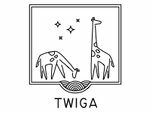Agriculture is a crucial component of Ghana’s economy which contributes around 20% to its Gross Domestic Product, provides employment for almost half its workforce, and supplies two-thirds of the raw materials used in its manufacturing sector (excluding oil). Cocoa, the country’s major cash crop and principle agricultural export, accounts for between 20-25% of Ghana’s total foreign exchange earnings2; a crucial resource for economic stability. Staple crops include maize, rice, soybeans, sorghum, and vegetables. Yet, the growth of the sector has stagnated in recent years. This is concerning, since increasing agricultural productivity is seen as a key component of economic development, with the agriculture sector an engine to drive the structural changes to the economy necessary for Ghana to move beyond lower-middle income status3. Here, I consider some of the ways that the Biosphere working group of the TWIGA consortium may help to address some of the challenges facing Ghana’s agriculture sector.
The growth of Ghana’s agriculture sector has remained low in recent years in comparison to other parts of the economy and is well below the target of 6%2. Ghana remains a net importer of food; a situation which the present government is keen to resolve. Yields of Cocoa, a mainstay of Ghana’s economy, are amongst the lowest in the world. Besides the obvious impacts on food security and the economy, stagnating crop yields have driven agricultural expansion and land use change, hampering Ghana’s ability to meet its international commitments to reduce deforestation2.
Why has productivity stagnated? The reasons are myriad, but a key problem is that smallholders do not have access to timely and locally relevant information on which to base their decisions. At present, smallholders largely rely on extension services to access information such as input prices, seasonal weather forecasts and crop prices. However, many communities receive only two extension visits during the year, leaving many farmers ill-equipped to make informed decisions. Farmerline, an agritech business with offices in Accra and Kumasi and a partner in the TWIGA consortium, was founded in 2013 to address this problem. They have developed an innovative platform to deliver locally relevant and up-to-date information to farmers via voice messages on their mobile phone, which currently serves more than 30,000 farmers across Ghana. At the same time, farmers using the service have the option to access financial services, such as credit and savings, to purchase high-quality fertilizer, helping to address the widespread problem of declining soil degradation.
Building on this success, the TWIGA consortium are collaborating with Farmerline to develop a suite of computer models to monitor crop health and predict the yield of key crops at the plot-scale. A key element of the approach is to leverage citizen science methods to involve farmers in the co-production of new knowledge. For example, part of the work is exploring the use of image recognition to detect crop health from photos taken on smartphones. This approach will improve the quality of the models, ensure that the resulting service can be tailored to specific circumstances, and facilitate a participatory approach which is more likely to result in “buy-in” from farmers.
Climate change will disproportionately affect smallholders. Weather is becoming less predictable and more extreme, increasing the likelihood and severity of floods and droughts and putting pressure on traditional coping mechanisms. The provision of weather-index based insurance products to smallholders is essential to reduce their vulnerability to the effects of climate change, as well as to give farmers the confidence to make on-farm investments that would otherwise be too risky. With the Ghana Agricultural Insurance Pool (GAIP), we will leverage information from computer models and observations to develop a soil moisture index which can be used as the basis for an index insurance product. The benefit of this approach over traditional weather index insurance products is to take into a wider set of variables which are known to influence crop growth.
The approaches outlined above are designed to work in tandem. The provision of insurance products to farmers gives them the security to make the necessary investments to increase productivity. At the same time, information such as that delivered by Farmerline will enable farmers to make informed decisions during the growing season to ensure the maximum benefit from these investments. A key aim of the TWIGA project is to focus on the underlying data infrastructure, collaborating with local partners such as Farmerline and GAIP who have deep expertise in service delivery in Ghana. Following this approach, TWIGA will provide the basis for further innovative services to address key challenges in Ghana and other countries in Sub-Saharan Africa.
Written by Simon Moulds

